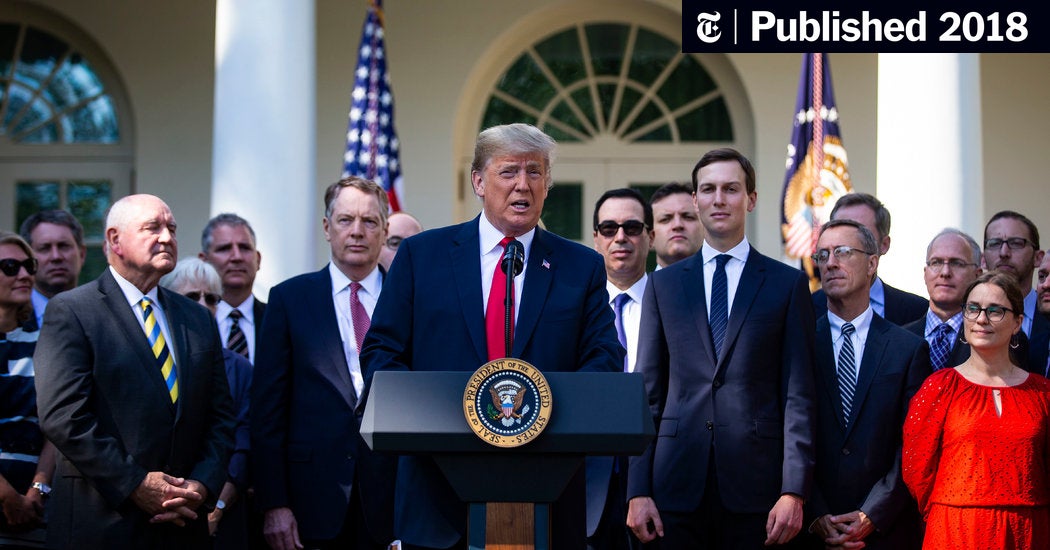The political landscape of North America has experienced transformative shifts with the advent of Donald Trump’s presidency. To explore the multifaceted dynamics of U.S.-Canada relations under his administration involves peeling back the layers of economic, political, and cultural exchanges. While the bilateral relationship between the United States and Canada has historically been characterized by mutual collaboration and shared values, Trump’s tenure elicited a reevaluation of these long-standing assumptions.
Firstly, one must consider the economic implications of Trump’s policies on Canada. The renegotiation of the North American Free Trade Agreement (NAFTA), which culminated in the United States-Mexico-Canada Agreement (USMCA), stands as a cornerstone of this discourse. Observers have noted that during the renegotiation process, Canada faced significant pressures. Trump’s administration adopted a confrontational stance, emphasizing protectionism and aiming to address what he characterized as imbalances in trade. This move unsettled a delicate economic interdependence that had fostered a deep-rooted export relationship.
Consequently, many Canadian industries found themselves in precarious positions due to potential tariff impositions on goods ranging from dairy to automotive products. This situation invoked a sense of urgency among Canadian policymakers, which catalyzed a reexamination of their trade strategies. Ultimately, while the USMCA retained many aspects of its predecessor, significant alterations were made in agricultural quotas and labor provisions. These changes illustrate the necessity for Canada to adapt to the unpredictable landscape of American politics, reinforcing a narrative of vulnerability even among allied nations.
Moreover, one cannot overlook the political rhetoric employed by Trump, which has continually framed Canada in a less than favorable light. Multiple instances of disparaging remarks towards Canadian prime ministers—both past and present—have fueled a perception of transnational discord. Such language fostered a climate of unease in diplomatic circles, impacting negotiations regarding not only trade but also crucial matters such as security and immigration.
The rhetoric took a particularly striking turn when Trump criticized Canada for its approach to defense spending under NATO obligations. Such critiques seemed to imply an expectation that allies should contribute equivalently to American security measures. This demand created friction and compelled Canadian leaders to fortify their domestic defense budgets amid a backdrop of skepticism surrounding U.S. commitments to international alliances.
In addition to the economic and political ramifications, sociocultural dimensions have also been strained. Trump’s nationalism and emphasis on “America First” generated a counter-narrative in Canada that emphasized inclusivity and cooperation. The ideological gulf widened, leading to a potentially fractious discourse among citizens in both nations. Canadian identity derives, in part, from its distinction as a multicultural and welcoming society. In stark contrast, the isolationist strains of Trump’s agenda have illuminated divergent worldviews that may linger long after his presidency.
Environmental policy represents another critical area of contention. Throughout Trump’s term, he made a point of withdrawing from key international agreements such as the Paris Accord and promoted fossil fuel dependency. This approach conflicts with Canada’s progressive stance on climate change mitigation, fostering an undercurrent of tension. Canadian officials and environmental advocates have sought to reaffirm their commitment to sustainability, often finding themselves at odds with U.S. initiatives that prioritize deregulation over ecological consideration.
Despite the complexities of the U.S.-Canada relationship during Trump’s presidency, there have been moments of resilience and cooperation evident in certain sectors. For instance, collaborative efforts in areas such as cybersecurity and emergency management underscore the shared interests that persist between the two nations. These partnerships signify an enduring commitment to maintaining lines of communication and mutual assistance, even amidst discord.
Furthermore, public sentiment has also shaped perceptions and reactions to the U.S. administration’s policies. For Canadians, the election of Joe Biden has ushered in a renewed sense of optimism regarding bilateral relations. The shift in tone from the United States is anticipated to reinstate a more congenial atmosphere, subsequently ameliorating the frictions that characterized Trump’s tenure.
In examining thoughts on Trump and Canada, it is evident that this period prompted significant introspection on both sides of the border. The complexities of economic interdependence, the challenges posed by national rhetoric, and the diverging cultural identities all highlight the intricate tapestry of relations. Ultimately, the U.S.-Canada relationship exemplifies the nuance inherent in international diplomacy, where alliances are often tested but not irreparably fractured.
As one contemplates the future trajectory of this relationship, it is essential to acknowledge the lessons learned during a period marked by turbulence. Principles of negotiation, mutual respect, and collaboration will be paramount moving forward, ensuring that both nations can navigate the evolving geopolitical landscape with sagacity and resolve.










